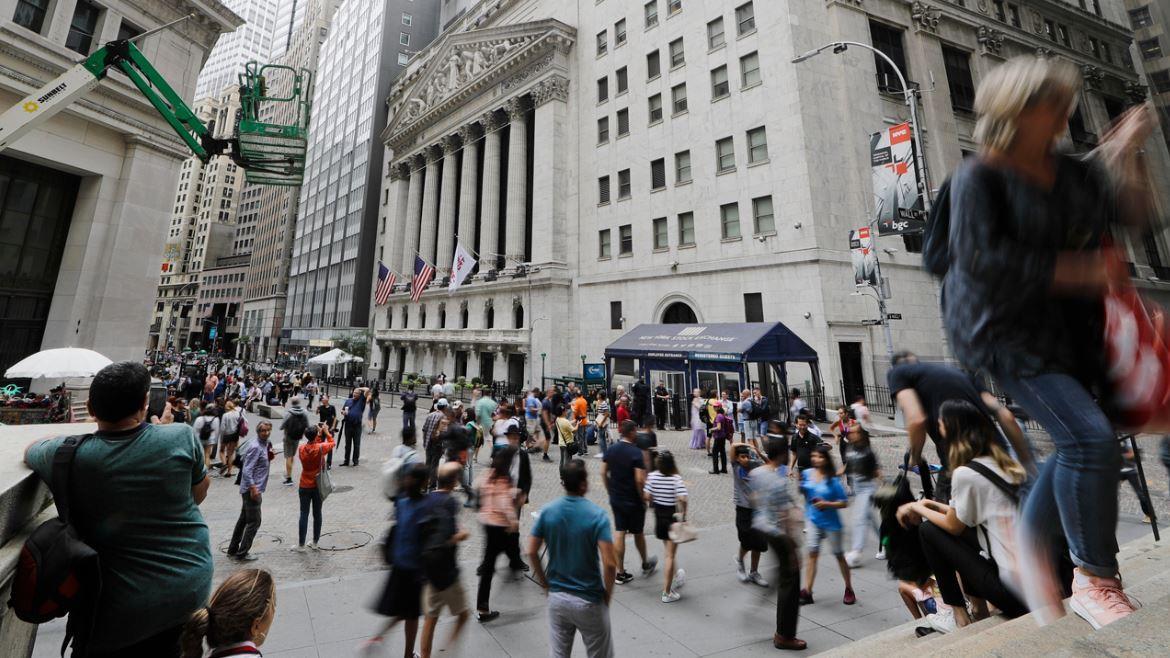Is the US economy slowing? Bad economic data reignites recession jitters
A heap of bad economic data in the U.S. this week rekindled gnawing fears that a recession is looming and sent a plain sign to Wall Street: The record-long expansion is beginning to slow.
"There’s no doubt, at this point,” said Peter C. Earle, a research fellow at the American Institute for Economic Research.
On Tuesday, American manufacturers posted the biggest contraction in more than a decade — a signal that generally precedes recessions. In September, the ISM Manufacturing Index fell to 47.8, the second straight month of contraction.
More concerning is that only three of the 18 U.S. manufacturing industries reported growth last month.
“The tariffs have caused much confusion in the industry,” said an executive who works at an electrical equipment company, referring to levies imposed by the Trump administration on billions of dollars in imports to secure better trade deals.
The sluggish data hammered stocks on Wednesday, when the private sector added fewer jobs than economists expected. Job growth in September slowed to 135,000, well below the 2018 average of 214,000. And while some industries posted strong gains, such as healthcare, others, like manufacturing, notably did not.
"Job growth is definitely slowing," Mark Zandi, chief economist of Moody's Analytics, said during a conference call with reporters. "Businesses have turned more cautious in their hiring. Small businesses have become especially hesitant. If businesses pull back any further, unemployment will begin to rise."
A disappointing services sector reading on Thursday fanned worries further. The closely watched ISM Non-Manufacturing Index came in at 52.6, missing Dow Jones' economist expectations of 55.3 -- a healthy expansion rate, but down from August's 56.4.
| Ticker | Security | Last | Change | Change % |
|---|---|---|---|---|
| I:DJI | DOW JONES AVERAGES | 50402.62 | +266.75 | +0.53% |
| SP500 | S&P 500 | 6980.32 | +15.50 | +0.22% |
| I:COMP | NASDAQ COMPOSITE INDEX | 23277.15071 | +38.48 | +0.17% |
Although the number remained above 50 -- anything below that signals contraction -- the pace of growth in the service sector is slowing, another sign the economy is cooling. It was the worst reading since August 2016.
During a call with reporters, ISM officials blamed the stumble on the U.S.-China trade war, a shrinking labor pool and the overall direction of the global economy.
Still, the most eagerly anticipated report of the week -- the Department of Labor’s September jobs report -- offered some glimmers of hope.
Although job growth of 136,000 in that survey -- which includes government hires -- missed economists’ expectations of 145,000, unemployment dropped to a 50-year low at 3.5 percent.
“The unemployment rate usually rises ahead of a recession, so a fresh decline pushes out the timeline for any potential recession into late 2020 at the earliest,” said Josh Wright, chief economist at iCIMS and a former staffer at the Federal Reserve. “That’s barring any major negative shocks, of course, but the bar is getting higher for the size of a recession-worthy shock.”
GET FOX BUSINESS ON THE GO BY CLICKING HERE
On Friday, Fed Chairman Jerome Powell maintained that, despite some long-term risks such as low inflation, the U.S. economy remains healthy.
"While not everyone fully shares economic opportunities and the economy faces some risks, overall it is -- as I like to say -- in a good place," Powell said. "Our job is to keep it there as long as possible."
Traders are currently predicting a 75 percent chance of a rate cut during the U.S. central bank's monetary policy meeting at the end of October, according to the CME's FedWatch tool.




















